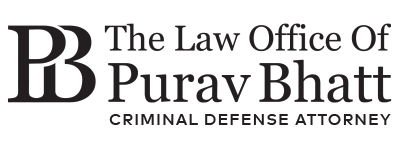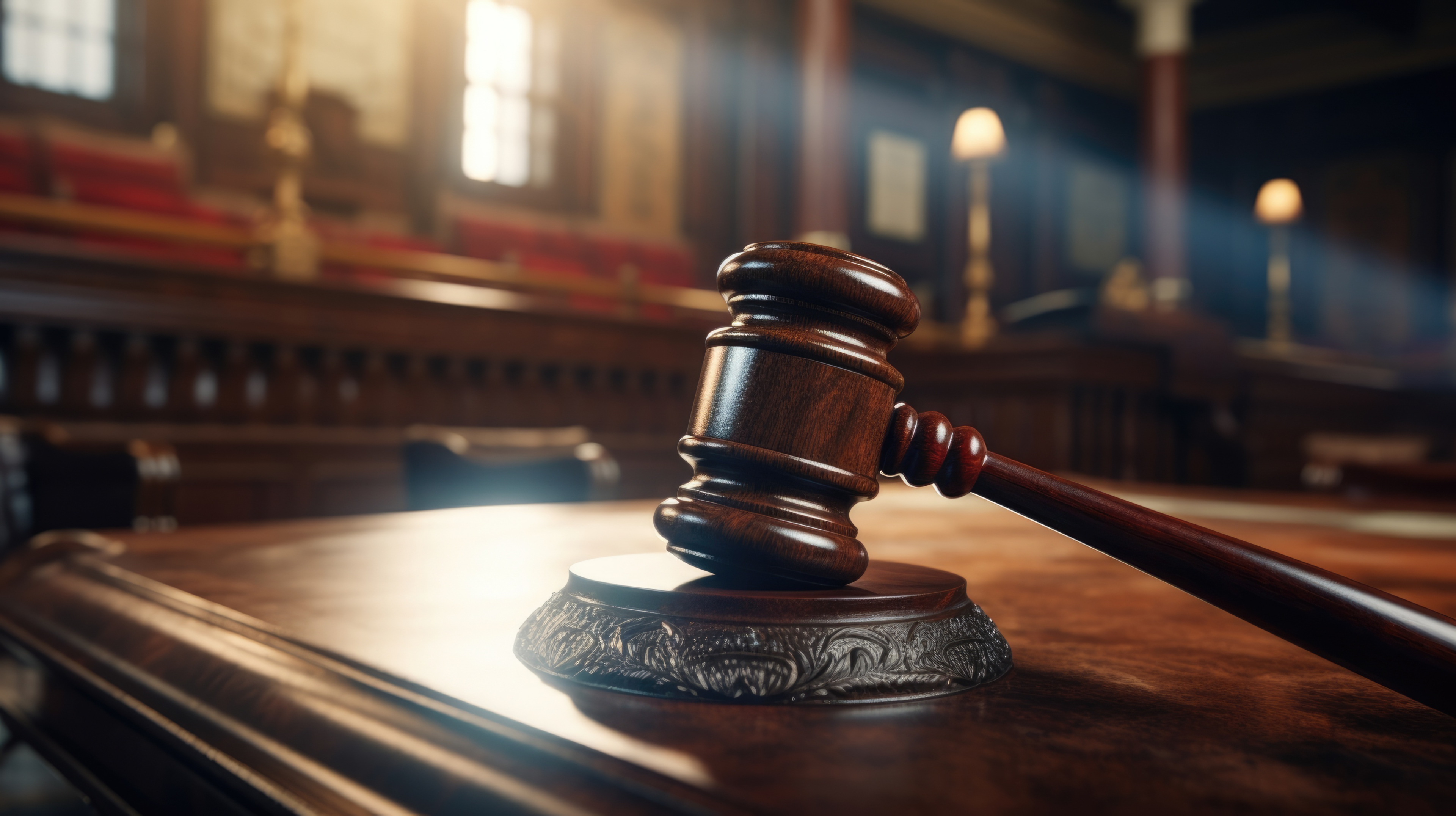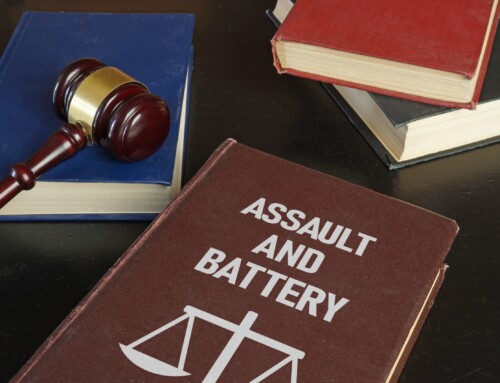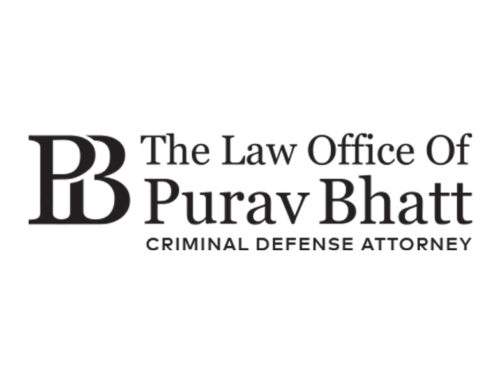Facing assault and battery charges can be an emotionally overwhelming experience. It can trigger a sense of anxiety, confusion, fear, and shame within you – especially if the incident in question was the result of a misunderstanding, an isolated event out of character, or based on a false or exaggerated claim.
Assault and battery charges are taken seriously and prosecuted vigorously in Chicago. If you have been accused of assault and battery by someone, hiring an experienced Chicago criminal defense lawyer should be your foremost concern. A conviction can not only lead to serious penalties including jail time, but also leave you with a criminal record that can adversely impact your reputation and career.
Attorney Purav Bhatt has decades of experience in defending individuals accused of misdemeanor as well as felony assault and battery charges. A former Cook County State’s Attorney, Purav Bhatt understands the intricacies of the criminal justice system and prosecutorial strategies better than most people. Contact the Law Office of Purav Bhatt today to discuss your case with a top-rated Chicago assault and battery lawyer.
👉Also read: Understanding The Difference Between A Felony And Misdemeanor
Assault and Battery Charges in Chicago
Under Illinois law, assault and battery are considered two different offenses.
Assault
According to 720 ILCS 5/12-1, a person is said to have committed assault when they knowingly engage in conduct that places another person in reasonable apprehension of being harmed.
In other words, assault does not require physical contact at all. It involves intentionally making someone fear that they might suffer bodily harm.
Battery
According to 720 ILCS 5/12-3, a person is said to have committed battery when they knowingly or recklessly makes physical contact with someone without their consent. Unlike assault, battery involves actual physical contact and often results in bodily harm.
It should be noted that under Illinois law, any physical contact of an insulting or provoking nature can be considered battery. What it means is that even actions involving minimal physical contact – like grabbing someone’s arm forcefully – can be considered a form of battery.
Simple assault and battery – in the absence of aggravating factors – are prosecuted as misdemeanors in Chicago. If the assault and battery results in injuries or if other aggravating factors are present – including the use of weapons, violation of a restraining order or an order of protection, assaulting children or disabled people, or assaulting people belonging to protected categories – the offense can be prosecuted as aggravated battery, which is a felony.
Legal Consequences of Assault and Battery Conviction in Chicago
The penalty for misdemeanor assault and battery includes a fine – which can range from $1,500 to $2,500 – and jail time – which can range from 30 days to one year – depending on whether the offense is prosecuted as a Class C, Class B, or Class A misdemeanor.
Felony assault and battery, on the other hand, carries severe penalties including large fines and prison time – which can range from 2 to 5 years (if prosecuted as a Class 3 or 4 felony) or 6 to 30 years (if prosecuted as a Class X felony).
Apart from this, an assault and battery conviction can leave you with a criminal record, which can affect your personal, professional, and social life and your civil liberties and constitutional rights – including your right to vote and your right to possess firearms.
In addition to this, the victim might also decide to file an assault or battery lawsuit against you in civil court and seek damages from you.
How Chicago Assault and Battery Lawyer Purav Bhatt Can Defend You
Defending against assault and battery charges in Chicago involves employing a wide range of legal strategies tailored to the specific circumstances of your case. Some of the common defenses that attorney Purav Bhatt might employ to defend you against assault and battery charges include:
Self Defense
If you acted in self-defense, believing that your actions were necessary to protect yourself from imminent harm, it can be a valid defense – as long as the force used was proportionate to the perceived threat.
Defense of Others
Similar to self-defense, if you believe that your actions were necessary to protect someone else from imminent harm, this defense can be raised.
Defense of Property
Under certain circumstances, using force to defend your property can be justified as used as a valid defense – as long as the force used was proportionate and justifiable under the circumstances.
Accident
If the incident in question occurred as a result of an accident, the lack of intent can be used as a defense against your criminal charges.
Lack of Intent
In an assault and battery case, the prosecution is required to prove criminal intent. If you did not intend to cause harm or if you acted unknowingly, your lack of intent can be used as a defense.
Mistaken Identity
If there is a case of mistaken identity, and if you are not the person who committed the alleged assault and battery, it can be a valid defense. It can be a particularly strong defense if you have evidence – such as surveillance camera footage or witnesses – to prove that you were not present at the location where the alleged incident occurred.
Expungement and Clearing Criminal Records – What You Need to Know
Having a criminal record can affect almost all aspects of your life – from your career to your ability to rent a place, get financial assistance for education, child custody, and many more. Expunging or sealing your criminal record can allow you to move on after past mistakes, open up new opportunities, and improve your quality of life.
Expungement and sealing are both legal processes that can help you clear or restrict access to your criminal records – including your juvenile records.
Expungement involves erasing or completely destroying criminal records. When a record is expunged, it is as if the arrest or conviction never happened.
Sealing, on the other hand, involves restricting access to criminal records. A sealed record is not destroyed. It is, however, not accessible to the general public. Law enforcement and certain government agencies can access sealed records under certain circumstances.
Eligibility for Expungement in Chicago
Some of the criteria you must meet for expungement in Chicago include:
- You were arrested and charged with a misdemeanor or felony but were not convicted.
- You were convicted of a misdemeanor or felony, but it was reversed or vacated.
- You have received a pardon from the Governor.
- You were convicted of a misdemeanor or felony and received a sentence of court supervision or qualified probation.
Apart from this, there is a waiting period involved in the process of expungement as well. For example, if you received a sentence of court supervision, you can apply for expungement only after two years. If you received a sentence of qualified probation, you can apply for expungement only after five years.
Eligibility for Sealing in Chicago
Sealing is a less complicated process than expungement and the eligibility criteria are a lot easier to meet. Most misdemeanor and felony convictions in Chicago can be sealed – except for certain criminal offenses like DUI, domestic violence, and crimes with sex offender registration requirements.
It should be noted that if you currently have any misdemeanor or felony charges pending against you, you cannot expunge or seal your records – even if you meet all the aforementioned criteria.
How Long Does it Take to Get a Criminal Record Expunged or Sealed in Chicago?
It can take anywhere from a few months to a year to expunge or seal a criminal record. The factors that can impact the duration of the expungement or sealing process include court caseload, the complexity of the offense in question, and objections raised by law enforcement and other parties against expunging or sealing the criminal records in question.
Despite the aforementioned challenges, a seasoned expungement lawyer can expedite the expungement or sealing process to a great extent. Attorney Purav Bhatt has extensive experience in expunging and sealing misdemeanor and felony offenses and will take all possible steps to clean up your records in the shortest timeframe possible.
👉Also read: Criminal Records: How a Chicago Expungement Lawyer Can Restore Your Reputation?
Looking to Clear Your Criminal Records? Our Chicago Expungement and Sealing Lawyers Can Help You
If you have arrests or convictions on your record and want to wipe the slate clean so that you can move on with your life, the skilled and resourceful Chicago expungement lawyers at the Law Office of Purav Bhatt can help you.
We can assess your records and determine whether you qualify for expungement or sealing, take care of all the paperwork involved, and do everything in our capacity to clear your record. Our legal team is led by Purav Bhatt – a former prosecutor and a celebrated criminal defense lawyer who is known for his unmatched legal knowledge, keen legal insights, and passion for helping those who are suffering due to past mistakes and want to start over.
Call our firm today at 773-791-9682 or use our online contact form to schedule a consultation with one of our proven and capable Chicago, IL expungement attorneys.







